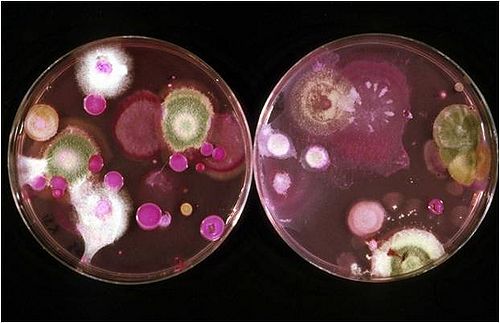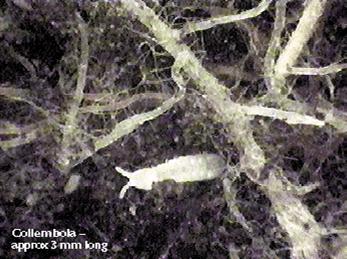LFS:SoilWeb/Soil Biology
Soil biology is the study of soil organisms, tier activity and ecology in soil. Soil organisms play numerous important roles in soils. The decomposition of organic matter by soil organisms has an immense influence on the availability of plant nutrients and overall plant growth. The nutrients stored in the bodies of soil organisms prevent nutrient loss by leaching. Exudates of various soil microorganisms help to bind soil particles and to maintain soil structure. Other soil organisms like earthworms and ants are important for the mixing of soil materials and creation of open channels through which water and air can flow.

Soil bacterial plate counts (Photo: Dr. Sue Grayston, UBC).

Collembola, or springtails, are common soil organisms in the phylum Arthropoda (Photo: Dr. Sue Grayston, UBC).
Soil organisms power the soil’s nutrient cycles, ensuring its fertility. Without the activities of soil organisms, organic materials would accumulate and litter the soil surface, and there would be no nutrients for plants. As a relatively new science, much remains unknown about soil biology and its effects on soil ecosystems.

Plants grow out of a fallen tree (Photo: Nicholas Tonelli).